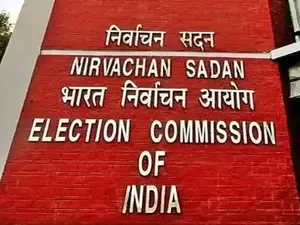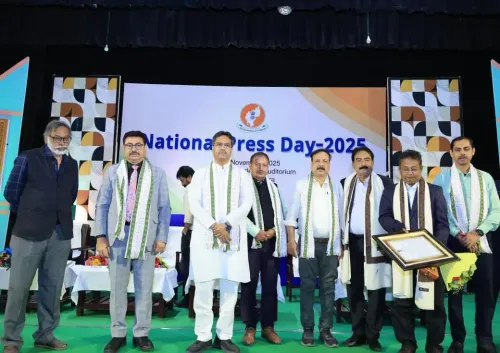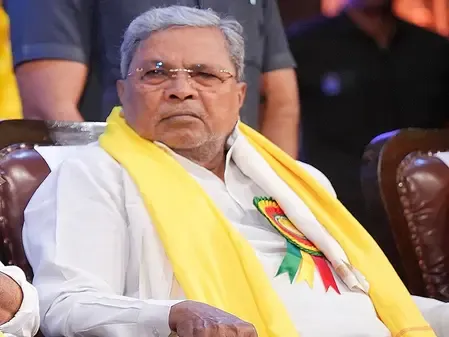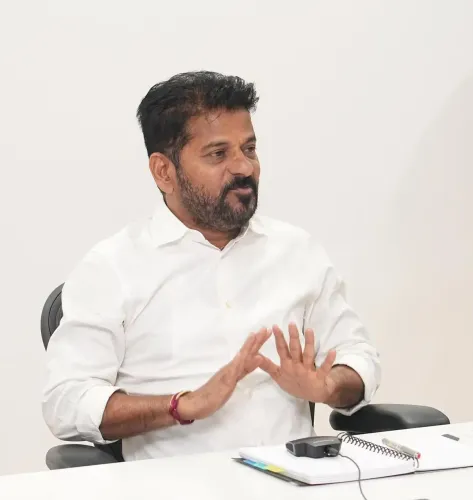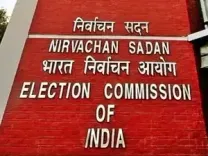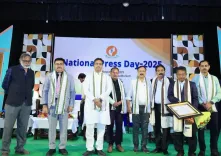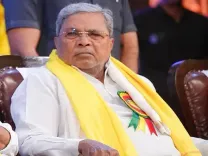How Do Supreme Court Judges Pay Tribute to Mahatma Gandhi?
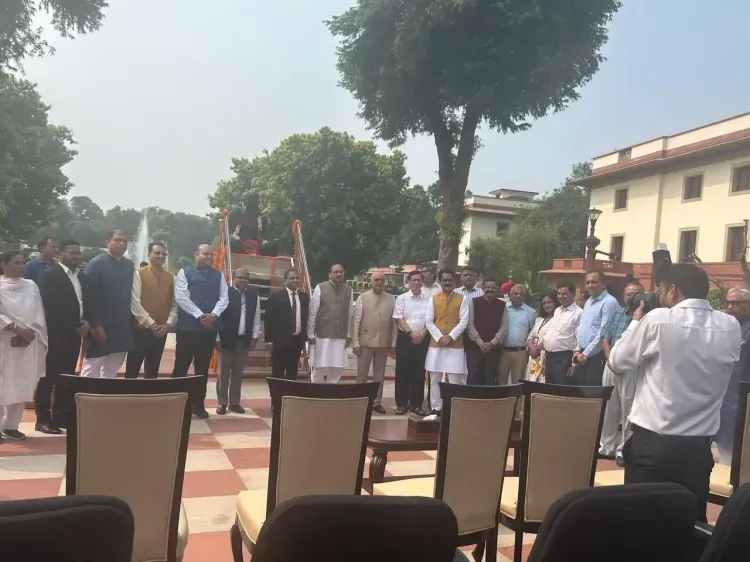
Synopsis
Key Takeaways
- Justice Surya Kant emphasized Gandhi’s teachings of simplicity and moral conviction.
- The tribute underscores Gandhi's role as a moral compass for Indian democracy.
- True freedom is about dignity and justice for all, especially the marginalized.
- The importance of reconciliation in justice was highlighted.
- Both Gandhi and Shastri shared a commitment to justice as a foundation for public life.
New Delhi, Oct 2 (NationPress) In commemoration of Gandhi Jayanti, Supreme Court justices, including Justices Surya Kant, Ahsanuddin Amanullah, N. Kotiswar Singh, and K.V. Vishwanathan, gathered on Thursday to honor Mahatma Gandhi with floral tributes at the Supreme Court premises.
After the tribute, Justice Kant expressed that visiting Gandhiji's statue brought him a deep sense of peace and introspection.
He portrayed the Father of the Nation as a moral compass whose principles continue to influence India's democracy, stating, “There was a serene dignity present that encapsulated his teachings on truth and non-violence.”
Justice Kant reflected on Gandhi's pivotal role in the independence movement, emphasizing how his ability to unite diverse groups of people sparked a national movement against British authority.
“True strength is found in simplicity and moral conviction,” Justice Kant emphasized, shedding light on Gandhiji's sacrifices and his vision of village self-reliance.
He further argued that Gandhiji's understanding of freedom extended beyond mere political independence. “For Gandhiji, true freedom was defined by the dignity afforded to the most vulnerable and by the promise of justice for those marginalized,” Justice Kant explained.
Justice Kant noted that the Mahatma's view of justice extended beyond traditional courtrooms. “Even the most intense adversaries shared common threads, and through appeals to both heart and mind, reconciliation could be achieved,” he asserted.
Justice Kant also paid tribute to former Prime Minister Lal Bahadur Shastri, recognizing him as a leader who upheld Gandhian principles in the highest levels of governance.
“His timeless call -- ‘Jai Jawan, Jai Kisan’ -- still resonates today, serving as a lasting tribute to both the soldier who protects the nation and the farmer who feeds it. His leadership was rooted in accessibility and moral clarity, reflecting Gandhi's vision that justice and dignity should encompass every household and field,” the Supreme Court judge remarked.
Highlighting the similarities between Gandhi and Shastri, Justice Kant noted their unwavering commitment to justice as the foundation of public life.
“For Gandhi, justice was inseparable from truth and compassion. Shastri embodied that moral vision in governance through simplicity, integrity, and inclusiveness, ensuring no citizen felt marginalized in the nation’s progress,” he stated.
In conclusion, Justice Kant urged that their shared values must act as a call to action, asserting, “Their legacy of justice, humility, and selfless service is more than just a memory; it is a call to uphold their principles as we navigate the ongoing journey of our democracy.”

